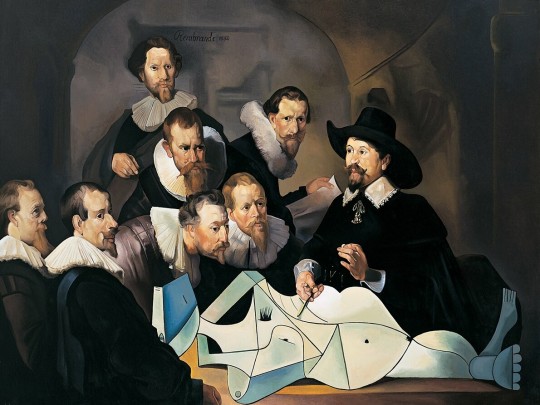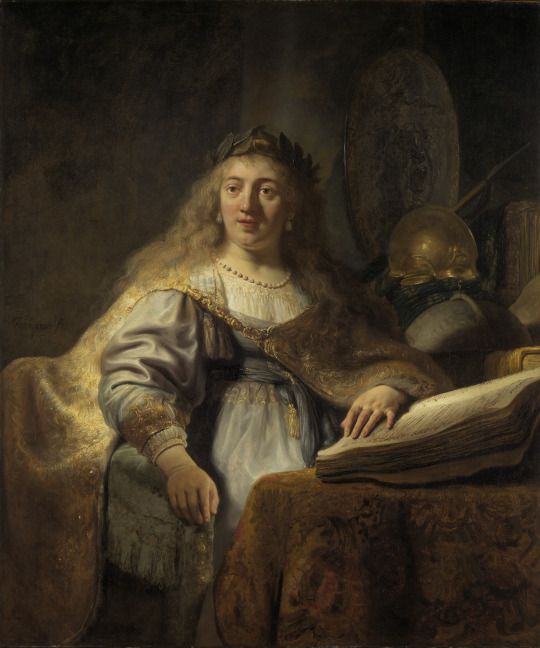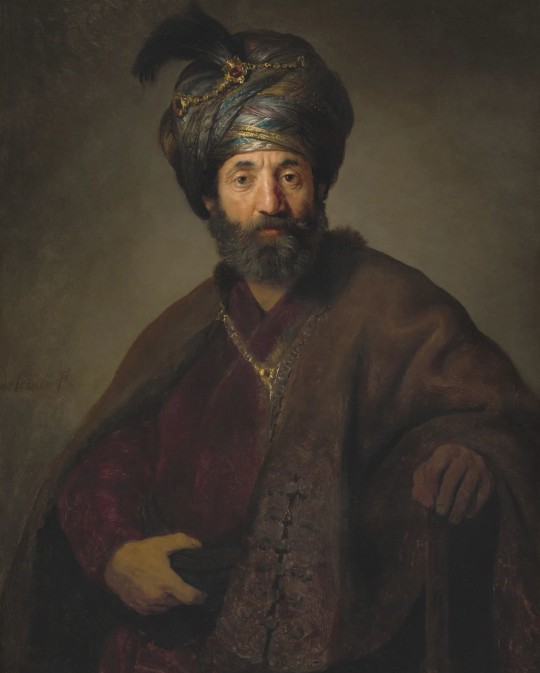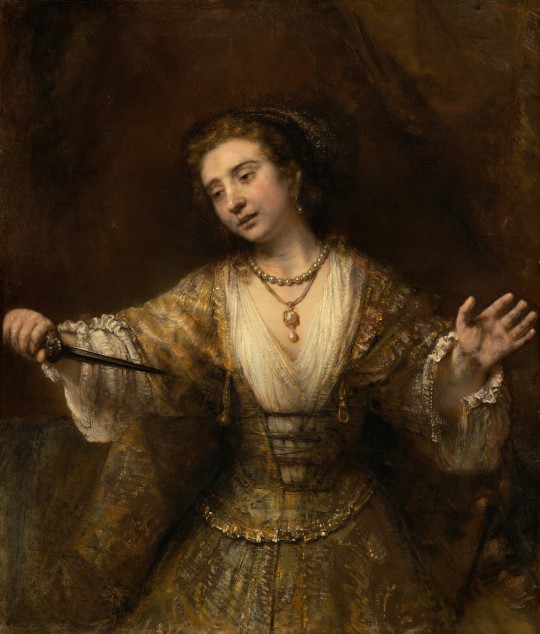#Rembrandt van Rijn
Explore tagged Tumblr posts
Text

Rembrandt Harmensz. van Rijn The Star of the Kings: A Night Piece, 1651 etching with drypoint
96 notes
·
View notes
Text

▪︎ Juno.
Artist: Rembrandt van Rijn
Date: ca. 1662-1665
Medium: Oil on canvas
#17th century art#17th century#history of art#decorative arts#history#art#juno#rembrandt van rijn#Rembrandt#1662#1665
61 notes
·
View notes
Text

Title: The Philosopher in Meditation Artist: Rembrandt van Rijn (Dutch, 1606-1669) Date: 1632 Genre: genre painting Period: Dutch Golden Age Medium: oil on oak wood Dimensions: 28 cm (11 in) high x 34 cm (13.3 in) wide Location: Louvre Museum, Paris
#art#art history#Rembrandt#Rembrandt van Rijn#genre painting#genre art#interior#chiaroscuro#Dutch Golden Age#Baroque#Baroque art#Dutch Baroque#Dutch art#17th century art#oil on wood#Louvre#Louvre Museum#Musee du Louvre
1K notes
·
View notes
Text

Lucretia / Suicide of Lucretia (1664) Historically attributed to Rembrandt but not by the "Rembrandt Research Project"
#rembrandt#17th century#1600s art#art#art history#oil painting#old paintings#painting#dutch golden age#baroque#ancient rome#rembrandt van rijn#art work
105 notes
·
View notes
Text

Angel Standing, attributed to Rembrandt van Rijn
Dutch, 17th century
pen and brown ink over traces of charcoal on laid paper
National Gallery of Art, Washington, D.C.
#angel#drawing#art#works on paper#Rembrandt#Rembrandt van Rijn#Dutch#baroque#Dutch Golden Age#pen and ink#charcoal#National Gallery of Art#NGA DC
619 notes
·
View notes
Text

Dimos Skoulakis (1939-2014) — Anatomy Lesson on a Cubist Nude by Picasso [oil on canvas, 1999]
594 notes
·
View notes
Text

Aristotle with a Bust of Homer
Rembrandt van Rijn
oil on canvas, 1653
101 notes
·
View notes
Text

The Three Trees by Rembrandt van Rijn. Dutch, 1643 CE.
Saint Louis Art Museum.
#saint louis art museum#Rembrandt van Rijn#Dutch#art#culture#history#european history#early modern history#early modern period#1600s#the netherlands
30 notes
·
View notes
Text

tamino, 'willow' / rembrandt van rijn, 'the abduction of proserpina'
43 notes
·
View notes
Text

Rembrandt van Rijn, Reclining female nude (engraving, 1658)
This is one of Rembrandt's most beautiful and understated works. The artist made this print late in his career, by which time he had begun to create remarkable painterly effects never before seen in printmaking, with combinations of velvety drypoint lines, films of ink left on the printing plate, and variously hued papers. This impression was printed on golden toned Japanese paper, which brings an underlying warmth to the dark image.
from here
20 notes
·
View notes
Text

Minerva in Her Study
Artist: Rembrandt van Rijn (Dutch 1606-1669)
Date: 1635
Medium: Oil on canvas
Collection: The Leiden Collection, New York City, NY, United State
Description
In this imposing masterpiece, Minerva looks up from her large folio and gazes out toward the viewer as though some distraction has interrupted her quiet concentration on the text. Golden light illuminates her powerful face with wide-open eyes and alert expression, as well as the long, flowing blonde hair cascading onto her shoulder. Her regal appearance is enhanced by the laurel wreath crowning her head, her pearl necklace, and the heavily embroidered cloak draped over her shoulders. Beneath the cloak is an ample blue garment tied with a knotted blue sash over a light gray skirt and a white shirt. In the background are more volumes, a globe, a golden helmet on a draped piece of fabric, a spear, and a large shield with the Gorgon’s head hanging from a column.
As one of the main Olympian deities, Minerva had various functions and attributes. She was the virgin goddess of war, but unlike her counterparts Mars or Bellona, she was neither belligerent nor cruel. Her inventive strategy led to victory and she was therefore, paradoxically, also the goddess of peace. She was also the goddess of wisdom, art, poetry, medicine and crafts, especially those of spinning and weaving. Rembrandt van Rijn was fascinated with biblical and mythological subjects such as Minerva, and he firmly believed that depictions of them and their stories comprised the most significant of all genres of painting. This principle, shared by collectors, theorists and painters alike, lay at the very core of Dutch humanistic traditions. Throughout his career, Rembrandt’s history paintings stand apart from those of other Dutch artists because of his ability to convey human feelings and emotions to gods and goddesses, and mere mortals from the Bible and mythology. In the mid-1630s, shortly after Rembrandt moved to Amsterdam, he radically transformed the style and focus of his history paintings, executing works such as Minerva in Her Study at a scale and with a visual power unprecedented in the Netherlands. It is not certain what motivated him to paint in such an imposing manner after he left Leiden, but probably he sought to emulate and even compete with the achievements of Peter Paul Rubens (1577–1641), then universally recognized as the greatest history painter of the day.
#mythological art#rembrandt van rijn#artwork#dutch culture#dutch art#minerva#interior#female figure#open book#laurel wreath#pearl necklace#embroidered cloak#books#globe#upholstered chair#garment#grey skirt#white shirt#sash#gorgon's head#column#drapery#roman mythology#roman virgin#dutch painter#oil on canvas#fine art#oil painting#european art#17th century painting
38 notes
·
View notes
Text


A Scholar in His Study (Faust), Rembrandt van Rijn, 1652.
Faust, Part One, Johann Wolfgang von Goethe, 1808.
#dark academia#aesthetic#art#books#literature#dark academia quotes#faust#goethe#rembrandt van rijn#a scholar in his study#1652#the metropolitan museum of art#occult
25 notes
·
View notes
Text

Title: The Prophetess Anna Artist: Rembrandt van Rijn (Dutch, 1606-1669) Date: 1639 Genre: portraiture, religious art (Christianity) Period: Dutch Golden Age Medium: oil on oak wood Dimensions: 79.5 cm (31.2 in) high x 61.7 cm (24.2 in) wide Location: Kunsthistorisches Museum, Vienna, Austria
#art#art history#Rembrandt#Rembrandt van Rijn#portrait#portrait painting#portraiture#religious art#Christian art#Christianity#Dutch Golden Age#Baroque#Baroque art#Dutch Baroque#Dutch art#17th century#oil on wood#Kunsthistorisches Museum
84 notes
·
View notes
Text

Saul and David
Artist: Rembrandt van Rijn (Dutch, 1606-1669)
Date: ca. 1651-1654
Medium: Oil on canvas
Collection: The Mauritshuis, The Hague, Netherlands
The Envy of Saul
In consideration of David’s frequent success and amazing skills in his service, King Saul promoted David, who continued to amaze his men and all Israel. Unfortunately, Saul had developed an ego problem, so he begins to resent David especially when he hears people singing, “Saul has slain his thousands, and David his tens of thousands” (v. 18:7). In bitter envy, Saul tries to kill David, whom he now sees as the enemy instead of a loyal servant. Thus, the arrangement of a marriage between Saul’s daughter Michal and David is more about Saul’s desire to ensnare or ultimately assassinate David than a holy union, ironically.
About the Painting
The painting depicts Saul, the king of the Israelites. He is visually touched by the harp playing. The depicted situation comes from 1 Samuel 16:14-23 and 1 Samuel 18:8-11, in which King Saul is abandoned by the Holy Spirit, and God sends him an evil spirit. It taunts Saul, and only David’s harp playing can relax him. Later David married Michal, one of Saul’s daughters. He eventually succeeded his father-in-law as King of the Israelites.
#painting#biblical scene#biblical art#king saul#david#king of israel#harp#music#oriental costume#christianity#christian art#book of 1 samuel#artwork#oil painting#fine art#art and the bible#dutch golden age#dutch culture#dutch art#rembrandt van rijn#dutch painter#european art#17th century painting
20 notes
·
View notes
Text

Rembrandt van Rijn (Dutch,1606–1669)
Man in Oriental Costume, 1635
oil on linen
98 notes
·
View notes
Text

Lucretia by Rembrandt van Rijn
Dutch, 1664
oil on canvas
National Gallery of Art, Washington, D.C.
#Lucretia#Ancient Rome#history painting#Rembrandt van Rijn#Rembrandt#Dutch#baroque#art#painting#Dutch Golden Age#NGA DC#National Gallery of Art
377 notes
·
View notes